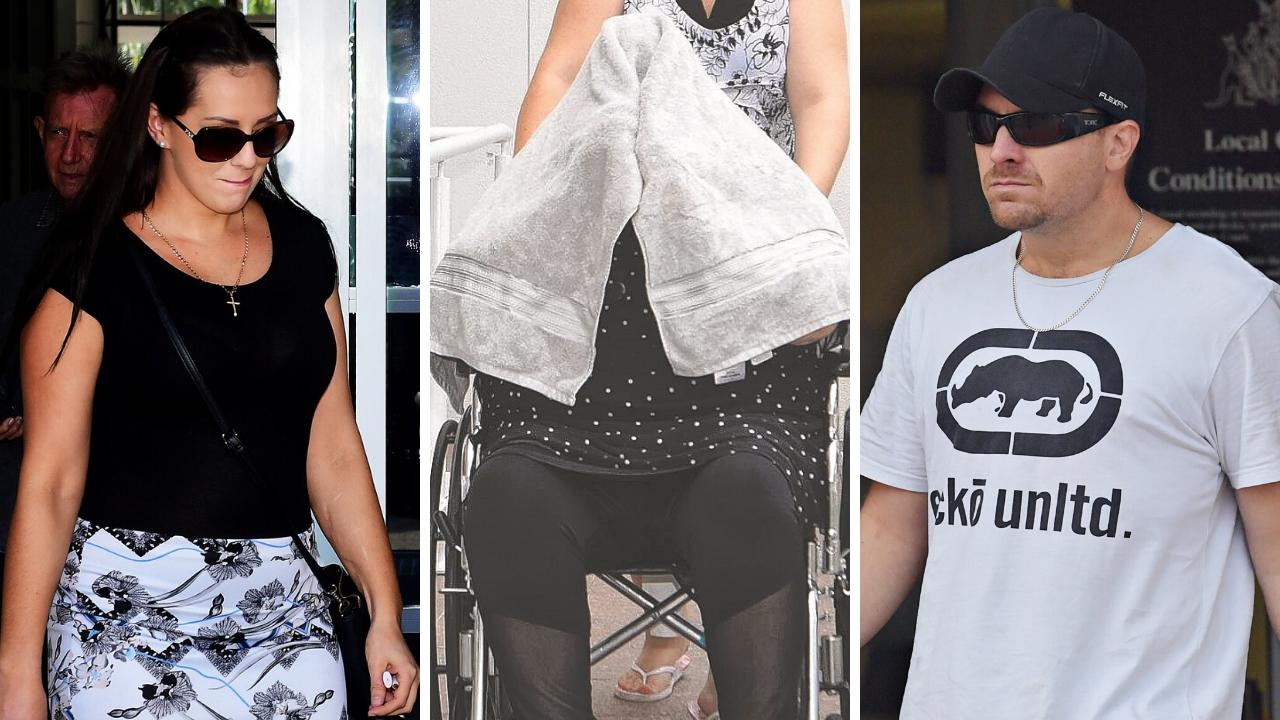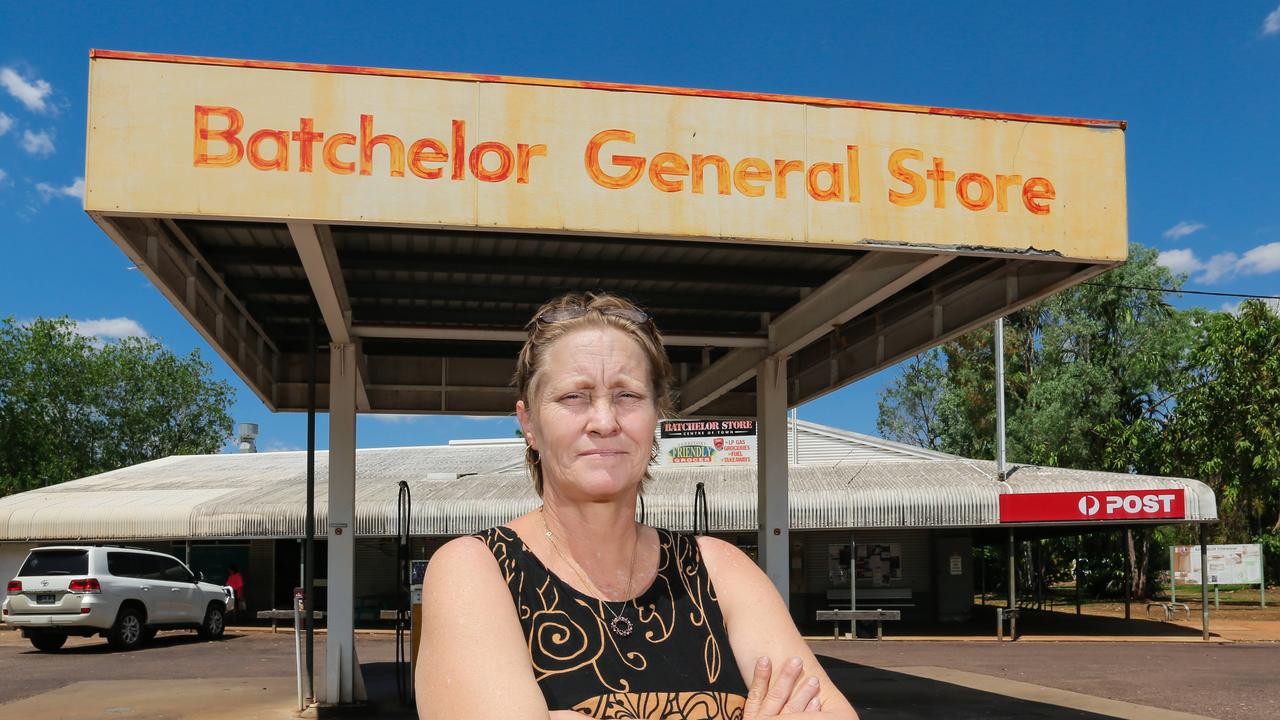True Crime FLASHBACK: Teen killers Ben McLean and Phu Ngoc Trinh dumped bodies in croc-infested waters of Adelaide River
FLASHBACK: It was February 2004 when a couple of baby-faced killers tied car batteries to the bodies of two prostitutes and hurled them into the croc-filled waters of the Adelaide River. They could be eligible for parole before the end of this decade. We take a look back at the case in our TRUE CRIME Flashback
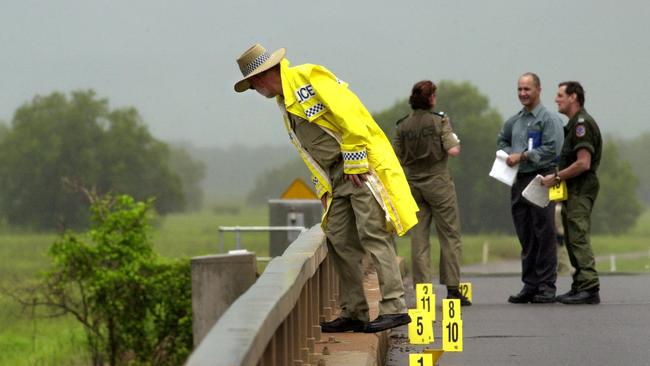
Crime and Court
Don't miss out on the headlines from Crime and Court. Followed categories will be added to My News.
IT WAS a killer friendship that sprouted from the schoolyard.
Territory kid Ben William McLean met Vietnamese migrant Phu Ngoc Trinh on a rural school bus in 2000.
McLean became a loyal friend and follower.
Trinh was his “big mate’’.
His father had been a soldier in the South Vietnamese Army before learning how to farm in the country’s rice paddies after the war.
The family fled Vietnam and then sought refuge in Thailand before emigrating to New Zealand in 1988.
Trinh was three.
He went to primary school and a Catholic college in Auckland before the family later migrated to Australia and moved into a suburban home in Brisbane, Queensland.
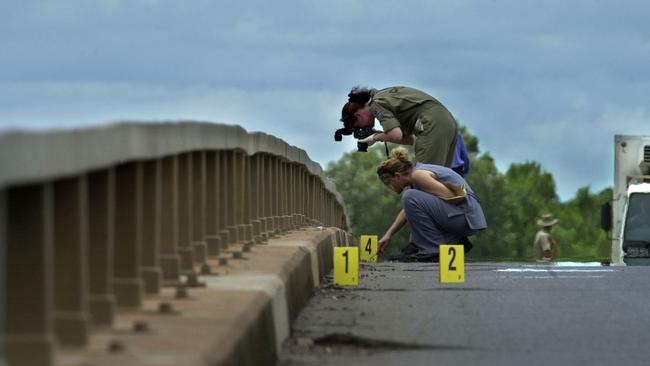
It was during a trip to visit friends in Darwin that Trinh’s father saw a bargain that was too good to pass up - a cheap property for sale at Marrakai.
He bought it with the intention of using the land to farm vegetables.
At 15, Trinh was enrolled at Taminmin High School, 40km up the road in Humpty Doo, where he met baby-faced McLean.
What followed was a mateship that survived the trials and tribulations of high school and led them to the laid back lifestyle of picking okra and living together on the Trinh family property.
Three years later, the partners-in-crime would commit an act of madness that would no longer see them bound by friendship, but a conviction for double murder.
The pair will be living together at the Darwin Correctional Centre until at least 2029 when they are eligible for parole.
Rex Wild QC prosecuted the two teenagers for double murder.
“They didn’t look like they were going to be gangsters, but they were,’’ he said from his chambers about eight years after the case.
“But motive? The word thrill killing was never used but I’ve often wondered whether there was some element of that in it.
“There was no evidence before the jury of drug taking but you would have to wonder about that with 18 or 19-year-old kids.
“What’s in their minds to do such a terrible thing?’’
Justice Dean Mildren, who has since retired from the bench, said there was nothing in McLean’s background to suggest he was capable of carrying out a cold-blooded killing.
“Although I think McLean may have been a month or two older than Trinh, he was very baby-faced and quite young looking,’’ he said.
“He had a good upbringing; he came from a good family.
“But Trinh was clearly very manipulative, a dominating personality and someone who was prepared to do things for the sake of enjoyment.
“He was a risk-taker and although no motive for this killing was ever established, I personally think Trinh wanted to take the risk of committing the murder to see if he could get away with it.
“It was all about the enjoyment of seeing if he could get away with it.’’
But was the risk worth the thrill?
It all started with a phone call to freelance Darwin prostitute Phuangsri “Poncee’’ Kroksamrang on the last Sunday in February, 2004.
Trinh was on the other end of the line and ordered two sex workers - at $200 a pop - for the following night.
The next day, he started preparations by purchasing red rope, cable ties and masking tape before confirming with Ms Kroksamrang, 58, that he would pick up his order later on.
The Thai woman put in a call to fellow freelance sex worker Budbue Sriwathada to see if she wanted to share the job.
She didn’t answer her phone.
Ms Kroksamrang then asked her 27-year-old protege, Somjai “Noi’’ Insamnan, if she wanted to help her out with the order.
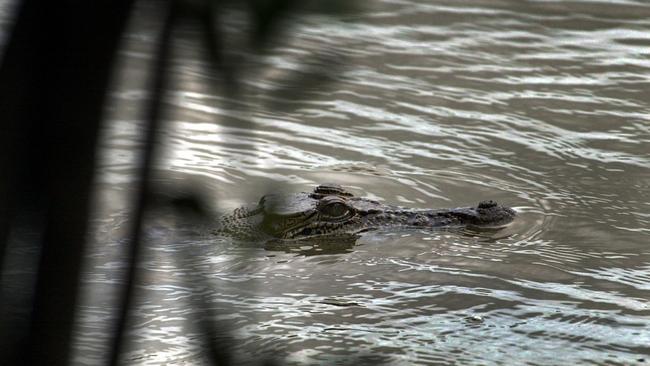
She agreed.
Ms Insamnan was known as a woman who never turned down a job because she worked to support her son back in Thailand.
Her dedication to the industry proved fatal.
At 3pm, Trinh used his father’s white kombi van to collect the two sex workers from their office, a $375-a-week McMinn St motel room, and drove 100km to deliver the surprise guests to his best mate back at the Marrakai property.
Both teens had sex with the younger working girl, while Trinh also engaged in some sexual activity with the older woman.
The prostitutes were expecting to be paid for their hard work.
Instead, they were bound and forced into the back of the van.
At that point, Trinh told his loyal companion of the murder plot.
McLean drove the van while Trinh secured their captives and forced Ms Kroksamrang to give up the location of her bank cards and her security details, which she did.
The older woman had some fight in her and struggled with Trinh, which caused her necklace to break, sending beads flying throughout the back of the vehicle.
Trinh overpowered her and used rope to strangle both prostitutes.
Cable ties secured the women’s legs to car batteries but as the teens tried to move two limp bodies from the van, they snapped.
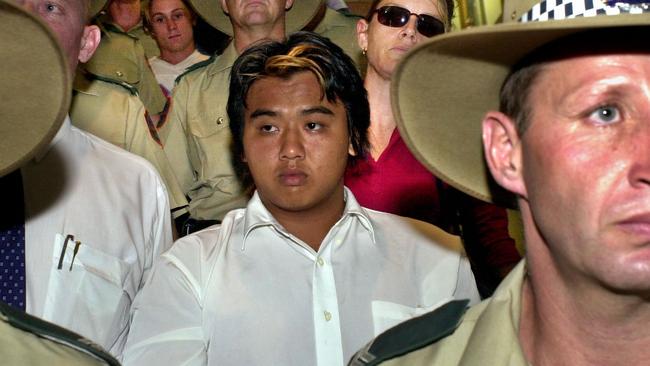
So the batteries were instead attached to their arms using rope before the women were hurled over the railing of the Adelaide River bridge on a Monday night.
Their bodies sunk to the bottom of the large waterway, known to have one of the highest concentration of saltwater crocodiles in the world.
They were not dead when they were discarded into the river, nor were they conscious.
Both women drowned.
Trinh dropped off McLean and then drove to Darwin, walked into Ms Kroksamrang’s hotel room and stole her bank cards before withdrawing $1800.
The rest of the day was spent as if nothing had happened. There was one mediocre attempt to cover-up their crime by burning some of the prostitute’s possessions in a pit.
But they didn’t do a good job - buttons and bits of shoe were easily recognisable amongst the ash.
Trinh and McLean had a simply philosophy - no bodies, no crime.
But the teens didn’t think their disposal method through because it was the end of the wet season in the Top End which meant there were about 50 per cent less crocodiles that would move through the area compared to the dry season.
So there were less beasts concentrated in that one arm of the river.
The women’s bodies surfaced about two days later.
Nineteen sets of eyes watched on as the body of a gagged Thai woman wearing pink underwear floated by their jumping croc tour boat shortly after 9am.
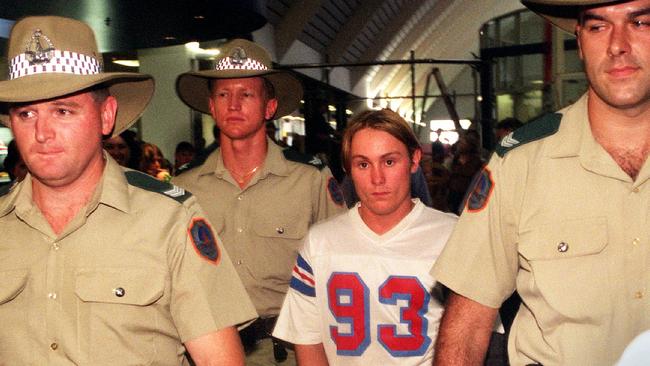
The then-manager of Spectacular Jumping Crocodile Crises, Peter Saltmarsh, said: “Fortunately the river wasn’t full of crocs otherwise we may never have known about the death.’’
Police were called but accidentally went to the other croc cruise about 1km up the river, only to find another body.
She was older than the first and wearing a black dress.
There was a lot of talk about how these two women had miraculously avoided becoming croc food.
But the only monsters these women encountered were Trinh and McLean.
As soon as police got a sniff that the two school mates were involved in the murder, they hopped on a plane to Brisbane.
But were found hiding in a wardrobe days later.
Trinh admitted the killing when interviewed by Detective Senior Constable Isobel Cummins of the NT’s major crime section and Detective Sergeant Daren Edwards of the Queensland police.
He firstly said he had strangled the women with his bare hands, but later admitted he used the rope found with the bodies.
Sen-Constable Cummins asked Trinh if Ms Kroksamrang was making any noise when she was tied up in the van.
Trinh replied: “No, she wasn’t. We had an agreement.’’
Sgt Edwards asked if the older woman co-operated with him because she thought he would let her go.
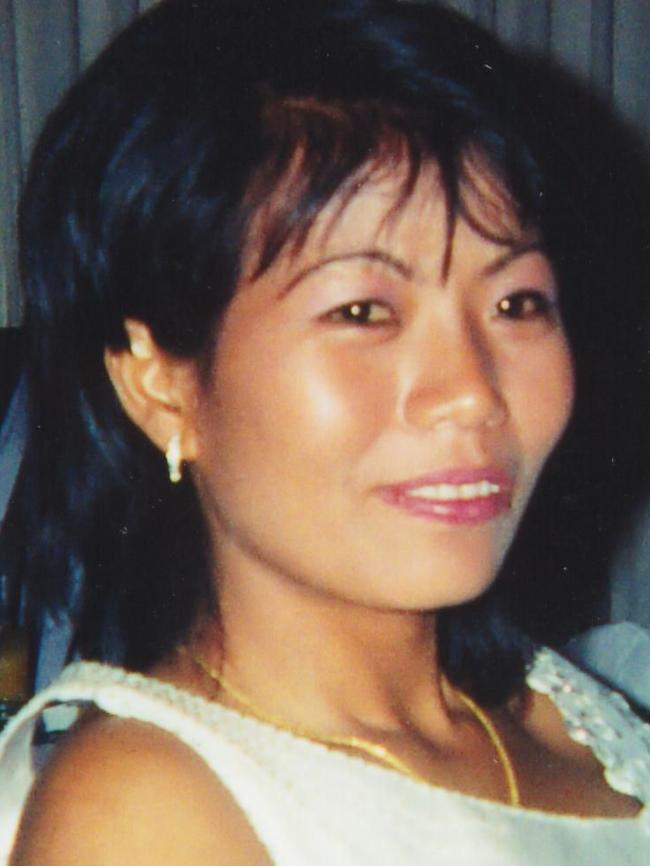
Trinh said: “No, she knew at the start, I think.’’
Sgt Edwards: “That you were going to kill her?’’
Trinh: “I was about to kill her as well and drop them both at the same time.’’
When he was asked why he killed the prostitutes, he responded that he didn’t know.
“Just suddenly - something really irritated me - can’t remember but it just ticked me off really bad,’’ Trinh said in his interview with police.
“Something just went wrong or something. Can’t explain it - can’t control yourself - someone says something - you just (inaudible) because you’re off your head probably.
“It’s full on. Just one of those things.’’
McLean also admitted to the murder in his first interview with officers.
Justice Mildren said: “McLean originally admitted to being there and admitted to taking part and gave a confession to police in Brisbane when he was arrested.’’
But both of their stories changed - and did not match up with each other.
McLean initially claimed they killed the women as repayment to outlaw bikie gang Hells Angels for a speed debt they owed.
He later agreed that story was a pack of lies.
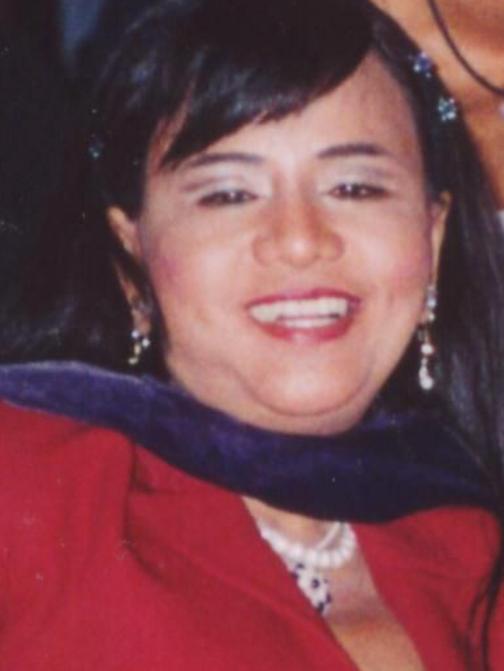
On the witness stand, he said: “I have never been in trouble with the Hells Angels.’’
He said Trinh had told him to use the Hells Angels story when they met up with friends after they fled the NT to Brisbane, which he repeated to police in a panic.
“I made it up, I don’t know particularly why I made it up,’’ he told the jury.
Trinh claimed he contacted Ms Kroksamrang in the months before the murder because he wanted someone to supply him ecstasy and was surprised to find out she was a sex worker.
He implicated three other men in the killing which he claimed were members of an Asian triad gang, called the Vietnamese People Community, that he knew from previously living in Brisbane.
Trinh said six gang members, headed by a “Mr Lee’’, suddenly appeared at his house with the women and it was the unidentified men who strangled and dumped the prostitutes in the river.
He simply watched it happen.
According to him, Ms Kroksamrang - who was known as “mum’’ - was killed by a man named JoJo, but later said he saw her choked by Ezy.
“I tried to do as much as I could (to stop the murders) but I couldn’t because they had a gun,’’ he told the jury in March 2005.
He feared he would also lose his life so he burnt crucial evidence.
But he claimed he left evidence around the house for police to find in case the gang came after him.
Trinh said if they came for him, he would turn himself in so he would be placed in custody and kept out of their reach.
“It would save my life if Lee’s gang was close behind me,’’ he told the court.
He also claimed that he lied during his initial interview because he feared for his parent’s safety.
But why did the Vietnamese People Community want the prostitutes dead?
Trinh claimed Ms Kroksamrang may have been targeted by the Asian crime gang for “elimination’’ because she was a police informant.
Defence lawyer Colin McDonald QC said: “The mechanism of death ... does fit more comfortably with the ruthless behaviour of a Vietnamese/Asian gang than these two teenagers.
“The mechanism of death itself was a cold one, it was calculating, it was utterly without mercy.’’
But Mr Wild told the jury it was simply an “unspeakable evil act’’ committed by Trinh and McLean.
He described the pair as “mischievous’’.
“It sounded ridiculous, it was ridiculous,’’ he would later say.
But in a last-minute courtroom twist, McLean admitted he lied to police and then used the `I was never there’ line to try and convince the jury he pulled out.
Justice Mildren said: “There was something of an attempt to show that Ben McLean was not involved, he claimed he wasn’t there and that he was left sitting under a pole.
“That was a rather fantastic story to be honest - why on Earth would he be left sitting under a pole?
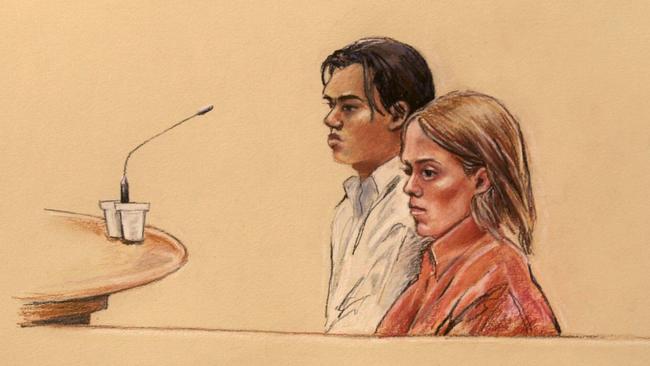
“But for what I can gather, the story seemed to be that McLean and Trinh had trussed up these two women and they put them in the back of the kombi van and that on the way to the Adelaide River bridge, McLean said: `I don’t want anything to do with it’.
“And he was dropped off and left there and it was Trinh, according to McLean, who murdered the two women.’’
But it wasn’t the most well thought-out explanation of what happened that night.
Justice Mildren said there were problems with that account because it would take the strength of two people to dispose of the bodies.
He said lifting an unconscious body attached to lead batteries over the railing was a “two-person job’’ and couldn’t be carried out by one man.
Evidence found on the cable ties also indicated there were two people present.
“It was just ridiculous (and) the jury thought so,’’ the then-Director of Public Prosecutions, Mr Wild, said.
“Why the women had to be killed, no real reason for that.’’
“Ben told two or three different stories and it was pretty obvious they worked something out in the cells as to what they were going to say in court,’’ he said.
“When you get a story as bizarre as that, it becomes self-evident.
“These are simple kids, they’re not sophisticated enough.’’
But for those involved in the trial, it was clear that McLean was heavily influenced by Trinh.
A psychologist report revealed McLean saw his younger friend as a role model and major support during his teenage years.
He played a more aiding and abetting role in the double murder.
“He does not demonstrate any of the well-known predicators of recidivism such as mental illness, sexual deviance, sociopathy, prior criminal history, a history of violence or intellectual disability,’’ the report stated.
His involvement in the murder was boiled down to immaturity and loyalty.
Despite this, Justice Mildren said he couldn’t differentiate between the teens when it came to giving them non-parole periods.
In the eyes of the law, they both did the crime - they both do the time.
They were handed mandatory life sentences with the minimum non-parole period of 25 years for double murder.
But Justice Mildren said there were sceptics about McLean’s guilt.
“I can tell you that the defence team had engaged private detectives to see if they could gather some evidence which would have helped McLean,’’ he said.
“I happened to be speaking to one of those detectives a few weeks ago and he told me that they personally believed McLean wasn’t there.
“But they couldn’t prove it.
“They found, he said, more evidence at the scene that the police missed.
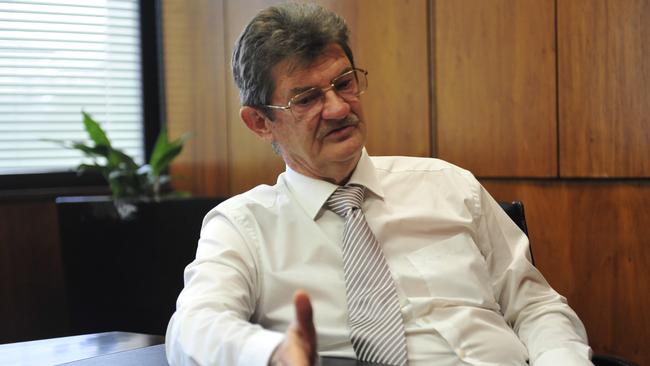
“He didn’t tell me what it was but apparently more forensic evidence was found at the scene.
“But nothing was made of it at the trial or any subsequent time.’’
In 2006, Trinh and McLean both appealed their guilty verdict.
McLean’s defence counsel David Grace, QC, told the Court of Criminal Appeal that the evidence supporting his murder conviction was so full of “discrepancies, inadequacies and inconsistencies’’ it should be quashed.
“The evidence ... lacks probative force to the point where it should lead the court to conclude there is a significant possibility that an innocent person, Ben McLean, has been convicted,’’ he said.
He said all the evidence suggested it was Trinh who had made all the arrangements.
“The jury verdict is unsafe because of these discrepancies and because this man may well have made a false confession,’’ he said.
Trinh appealed his conviction on the grounds the jury was not discharged midway through the trial when it inadvertently received information that had been suppressed during the proceeding.
He claimed the verdict should be overturned because the jury had been given an unedited transcript of his interview with police.
Mr McDonald - who represented Trinh in the jury trial - said the transcript contained inadmissable evidence, including a conversation about ecstasy use.
The appeal court heard the jury sent two notes to Justice Mildren about the error.
The first note said the jury had noticed some jurors had different transcripts.
The second said while the jury realised the transcripts were only a guide to interpreting the video evidence, there was one section that was “wildly different’’ to the tape.
Some of the transcripts also included details about Trinh’s past meetings with a “shrink’’ and alleged anger management issues.
Mr McDonald said this gave the jury a possible motive for the killings - namely Trinh was angry and “drug addled’’ at the time.
Trinh’s lawyers applied to have the jury discharged when the editing error was identified but the trial judge refused the application.
But Mr Wild said Trinh and McLean had conspired to present a story that covered all the likely evidence against them.
“It is indicative of a conspiracy between two men who have come before a jury and put a story which they’ve cooked up together over the previous 12 months, using all the material that will be led against them at their trial,’’ Mr Wild told the court on April 28, 2006.
In September that year, their appeals were dismissed.
Ms Kroksamrang’s former husband Jay-de Marko said he hoped Trinh and McLean would never be released from prison.
“They’ve taken away my only family and don’t deserve to see theirs on the outside again,’’ he said.
“They should never be let out of jail.’’
Mr Marko met Ms Kroksamrang and her two children in West Australia about 20 years before the murder and were married for more than a decade.
The couple opened a restaurant in Melbourne but when they fell on hard times financially, Mr Kroksamrang became a sex worker.
They moved to Darwin in the early 1990s.
Mr Marko left the Territory in April 1998 after his wife became romantically involved with a former client, but the pair remained close friends up until her death.
“They chose the road they are going down,’’ he said of Trinh and McLean in March 2005.
Both Mr Wild and Justice Mildren remember this case to be unusual.
“What made it very different was that it was a double homicide and it involved prostitutes,’’ the retired judge said.
“The murders took place in quite a remote location and of course it involved the NT News’ favourite subject - the possibility of crocodiles.
“It was a very interesting case.’’
Mr Wild said one of the things that surprised him about the Thai hooker murder case was that it didn’t get the media coverage he thought it would.
But he attributed that to the disappearance of British backpacker Peter Falconio - a mystery that spanned the same time period.
NT NEWS sizzling new deal: Get all your news for just $5 a month
HOW TWO KIDS BECAME EVIL KILLERS
2004
MARCH 1: Prostitutes Phuangsri “Poncee’’ Kroksamrang and Somjai “Noi’’ Insamnan were bound, strangled, weighed down by lead batteries and thrown from the Adelaide River bridge.
MARCH 3: The women’s bodies are seen floating in the river by horrified tourists on jumping crocodile cruises.
MARCH 5: Police say they have a list of suspects.
MARCH 10: Armed police burst into a house in Brisbane and arrest Phu Ngoc Trinh and Ben William McLean.
MARCH 12: Trinh and McLean are flown back to Darwin and are greeted by a pack of journalists.
MARCH 15: The teenagers make their first appearance in court charged with two counts of murder.
AUGUST 3: A court committal hearing begins to decide whether Trinh and McLean should be sent for trial in the Supreme Court.
AUGUST 24: Bert Hofer, the police officer who led the murder inquiry, is promoted from superintendent to commander.
SEPTEMBER 20: Trinh and McLean are committed to stand trial in February.
2005
FEBRUARY 18: The trial begins in the Darwin Supreme Court. Both men plead not guilty. The court hears Trinh spent two years in a refugee camp before going to New Zealand, then Australia.
FEBRUARY 25: McLean owed bikies $5000 and they made him kill the women, according to a tape police interview played in court.
MARCH 4: McLean says he did not kill the women.
MARCH 8: Trinh tells the court an Asian gang murdered the prostitutes.
MARCH 16: Justice Dean Mildren tells the jury: “They are horrific crimes but that means you have to be more careful that your task is a clinical examination of the evidence.’’
MARCH 19: The jury returns an unanimous verdict of guilty and Trinh and McLean are sentenced to the mandatory sentence of life in prison.
2006
APRIL 26: The Court of Criminal Appeal heard both murder convictions should be quashed because McLean was innocent and the jury was prejudice when determining Trinh’s guilt.
APRIL 28: Judges reserve their decision.
SEPTEMBER 27: Appeals are dismissed.

